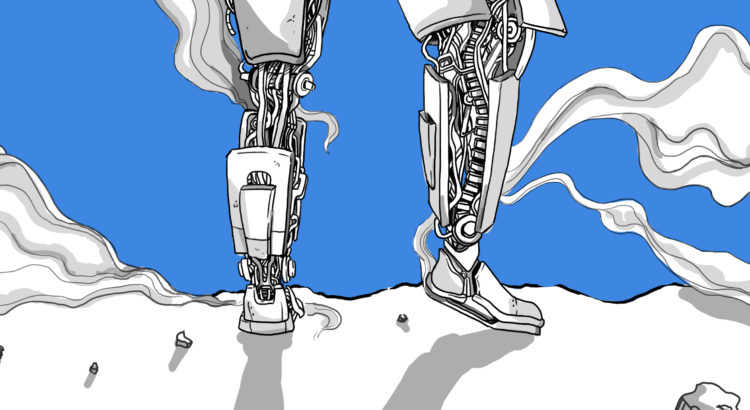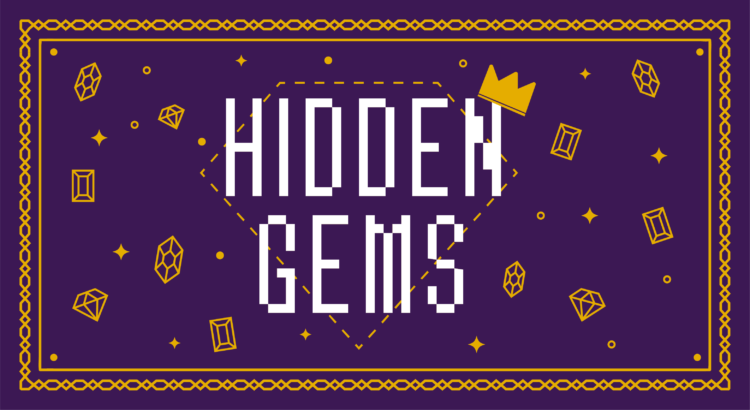If you’ve never heard of the band before, their name alone might cause some hesitation, but I promise you that King Gizzard and the Lizard Wizard is the perfect example of a hidden gem. The Australian rock band was first formed in 2010 and has slowly grown a cult following with their bizarre and experimental rock music. They’ve been a breath of fresh air for the stagnant rock genre by exploring new musical territory with amazing success. More impressive than their musical range is their commitment to concept albums with authentic instrumentation and gripping narratives. I’ve mentioned in the past how concept albums hold a special place in my heart; they’re the perfect example of how different artistic elements can be incorporated into one project. They usually feature thoughtful narratives over multiple tracks, musical themes and callbacks throughout the album, and a unique aesthetic that is developed in every aspect of the project. King Gizzard and the Lizard Wizard is a master of this medium, to the point where they have developed an entire musical universe. Each album is a unique immersive experience, but with enough distinct elements that the band is consistent and easily recognizable. Since their discography is huge (and I mean HUGE, they released 5 album in 2017 alone), I can only cover some of their material, but I think these two albums represent what I love most about the band.
Infest The Rats’ Nest

Infest The Rats’ Nest is by far my favorite thrash album; the narrative is crushing and perfectly complemented by some of the most heart-pounding instrumentation I’ve ever heard. I’m not usually a fan of the thrash subgenre, mostly because it tends to be overwhelming and headache-inducing, but King Gizzard and the Lizard Wizard knows what they’re doing. The instrumentation is clean and concise throughout the entire album, with some parts even sounding symphonic, like they were composed by a heavy-metal Mozart. Along with this, the band is not afraid to experiment with a variety of instruments: many songs feature electronic glitches used to great effect, while they also employ choirs, microtonal instruments, and heavily distorted guitars. The entire sound of this album can be summed up as an army rising up in rebellion, it’s absolutely visceral. If the instrumentation wasn’t enough, the narrative of Infest The Rats’ Nest is just as gripping. The core message of the album is environmentalism (believe it or not), with the first half detailing a science fiction hellscape that used to be Earth, which is now decimated by climate change, plague, and poverty, while the rich have left to live on Mars. The second half of the album details the perils of an escaped spaceship of refugees looking for safety in the vastness of space. Both halves are equally well written and developed, but I especially love the environmental themes of the first half and how well they’re conveyed through the music. If you want to hear more of my thoughts on this great concept album, you can read my previous post here which dives more into the lyrics.
Murder of the Universe

Murder of the Universe is an even more obscure hidden gem, and is even unpopular in the King Gizzard and the Lizard Wizard fanbase. Many criticize the spoken word passages, the overall aesthetic, and some of the more experimental parts of the album, but all of these features make this one of my favorite albums. The first third of the album is a fantasy inspired nightmare about a man transforming into an Altered Beast, and from the first notes of the first track you know you’re in for a wild ride. I think this is one of King Gizzard and the Lizard Wizard’s most developed compositions, both thematically and musically. The entire narrative is incredibly cohesive and gripping from start to finish, with the listener experiencing pure chaos as the protagonist descends into madness. I also love how the main musical theme is developed throughout this portion of the album; just as the protagonist is altered into some monstrous beast, the musical theme is altered into a beast of its own, ultimately culminating in an explosive climax on the last track of this portion of the album.
The second third of the album is just as insane as the first, but now with a story featuring The Balrog and the Lord of Lightning. Again, this is an absolutely electric part of the album, with many of the same features that made the first portion so great: incredible musical motifs, fantasy storytelling that is dark and chaotic, and an overall aesthetic that is reminiscent of Greek mythology and epic battles. My only complaint is that this is the shortest section of the album and seems to be the least developed as far as the narrative concept.
However, the last third of the album makes up for what the second part was lacking in a narrative concept. Right from the start of the introduction track you can tell that there is something different; a monotone and robotic narrator welcomes the listener to “an Altered Future”, and suddenly you’re in a science fiction horror story, detailing the murder of the universe. This portion of the album follows the cyborg Han-Tyumi as he tackles what it means to be half-human, half-computer in the most unsettling and imaginative way. I can say without a doubt that this is my favorite part of the album, both because of how experimental the instrumentals are and because of how outrageous and mind-bending the story is. I don’t want to spoil the narrative, so all I’ll say is that it is a completely unorthodox take on artificial intelligence and what it means to be human, and could only be thought up by a band called King Gizzard and the Lizard Wizard. Overall, this is an incredible album that lives up to the high expectations of a concept album. It has something for everybody and is a testament to the versatility of King Gizzard and the Lizard Wizard.










